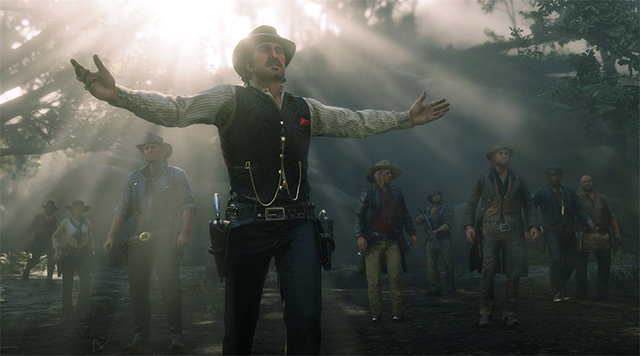
[dropcap]R[/dropcap]ockstar have recently come under fire for claiming that their developers have been working 100 hour weeks.
Dan Houser, Rockstar co-founder, was quick to respond to these allegations claiming that the level of work in question is only done by a small team. “The senior writing team, which consists of four people, Mike Unsworth, Rupert Humphries, Lazlow, and myself, had, as we always do, three weeks of intense work when we wrapped everything up. Three weeks, not years. We have all worked together for at least 12 years now, and feel we need this to get everything finished.”
Houser continued on to say, “we obviously don’t expect anyone else to work this way” and “that additional effort is a choice, and we don’t ask or expect anyone to work anything like this.”
This isn’t the first time Rockstar have received allegations of overworking employees during the creation of the previous Red Dead Redemption. Rockstar have lifted a ban on speaking to the public about work following these allegations and many staff have come out as saying that the allegations are false and that they haven’t been pressured to work anything near these hours.
Other companies such as EA have faced similar accusations during periods where they are expected to be behind or failing to meet their schedule otherwise known as crunch time. Crunch time has become a defining characteristic for the video game industry due to the pressure of meeting consumer demands for release dates and competition from other gaming companies.
In 2004 the EA spouse story was at the forefront of the debate. An EA employee’s spouse came forward on his behalf to talk about the conditions that were being faced. The employee was aware that he would have to work many extra hours when the deadlines were approaching.
When he began working at the company he was working eight hour days, six days a week in a state of mild crunch to prevent the bigger crunch at the end of the project. The schedule was due to return to normal by a certain deadline but it didn’t change for quite some time when it then rose to 12 hour days, six days a week. The reality of this situation was also that there was no compensation for those overtime hours.
The EA spouse story led to a movement against the conditions with many others sharing their stories. The current Red Dead situation has seen the opposite occur where the developers have been allowed to come forward and speak with none criticising the workplace for it’s conditions.
Vivian Langdon came forward with one of the most descriptive threads on Rockstar conditions. It began with her saying “I have never worked more than maybe 50 hours a week (and that’s a rare occurrence), but I generally work about 2-6 hours of paid overtime per week.” She continues to defend the legality of the situation by saying “I’m “non exempt” so my overtime pay starts at 1.5x salary and scales to 2x after 8 hours of OT in a week or 12 hours in a single day, in accordance with California law. Also, I have only been asked to work on weekends once or twice in my entire time at R* on the Tools team.” Her tweets continued to say that she has not felt mistreated or overworked.
While the claims that time crunch is still a massive issue in the gaming industry, it does appear that many companies are attempting to solve their issues without overworking their staff and are succeeding in comparison to the reality that EA workers faced in 2004.
Hugh Farrell
Image Credit: gmerant.com



